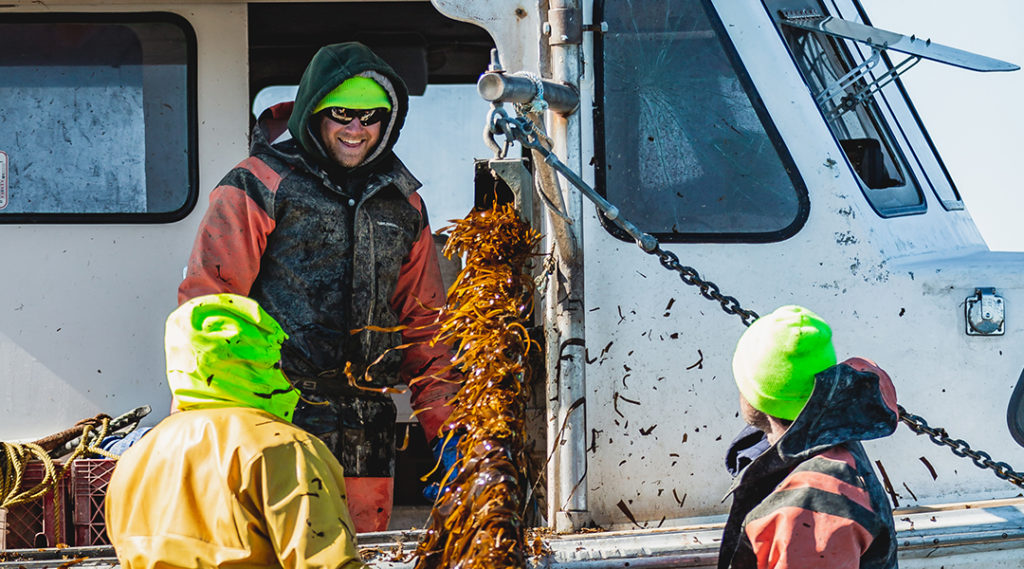Maine edible seaweed processors are “split” regarding the role of organic in their industry’s product offerings. products’ strategic role in their product offerings.
That’s according to a new report by the Island Institute, a Rockland, Maine-based nonprofit, that describes the growth potential of the edible seaweed market in Maine, a major farmed seaweed producing state, over the next 15 years.
“At this time, organic Maine farmed edible seaweed products are viewed as a potential differentiator, but not a requirement, for success,” said the new Edible Seaweed Market Analysis.
Among the concerns over organic by Maine edible seaweed processors are that “ocean-based products cannot truly be labeled organic due to the uncontrollable nature of open water contents and that the organic licensing requirements are not justified given the incremental costs and operational restrictions associated with organic labeling,” said the report.
Another potentially limiting factor is the fact that organic seeds are about 50-100 percent more expensive than nonorganic “due to a longer growing cycle and other organic product requirements,” said the report.
“The other primary farmed seaweed producing state, Alaska, has relatively rigid organic certification requirements and the harvesters/processors have not pursued organic product options to date,” said the report. “Harvesters and processors need to assess the role of organic in their growth strategies, including evaluating the cost implications relative to the market potential, to make their own determinations regarding evolving to an organic product positioning.”
Read more


